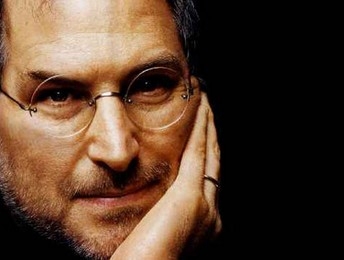To Infinity!
飞越太空!
There were two premieres of Toy Story in November 1995. Disney organized one at El Capitan, a grand old theater in Los Angeles, and built a fun house next door featuring the characters. Pixar was given a handful of passes, but the evening and its celebrity guest list was very much a Disney production; Jobs did not even attend. Instead, the next night he rented the Regency, a similar theater in San Francisco, and held his own premiere. Instead of Tom Hanks and Steve Martin, the guests were Silicon Valley celebrities, such as Larry Ellison and Andy Grove. This was clearly Jobs’s show; he, not Lasseter, took the stage to introduce the movie.
1995年11月,《玩具总动员》共举行了两场首映式。迪士尼在洛杉矶的埃尔卡皮坦大剧院(ElCapitan)举办了一场,还在隔壁建了一个游乐屋,展示所有的电影角色。皮克斯也有一些入场券,但是当晚的活动和邀请嘉宾的名单基本都是迪士尼决定的;乔布斯甚至都没去参加。第二天晚上,乔布斯在旧金山租用了与前者不相上下的雷根西剧院(Regency),举办了他自己的首映式。到场嘉宾不再是汤姆·汉克斯和史蒂夫·马丁这些影星,而是硅谷的那些大腕:拉里·埃利森、安迪·格鲁夫、斯科特·麦克尼利,当然还有史蒂夫·乔布斯。很显然这是一场史蒂夫的演出,他,而不是拉塞特占据了舞台,向观众介绍影片。
The dueling premieres highlighted a festering issue: Was Toy Story a Disney or a Pixar movie? Was Pixar merely an animation contractor helping Disney make movies? Or was Disney merely a distributor and marketer helping Pixar roll out its movies? The answer was somewhere in between. The question would be whether the egos involved, mainly those of Michael Eisner and Steve Jobs, could get to such a partnership.
这种双首映式的安排凸显出一个日益严重的问题。《玩具总动员》到底是一部迪士尼电影还是一部皮克斯电影?皮克斯只是帮助迪士尼制作电影的动画承包商吗?抑或是,迪士尼只是帮助皮克斯出品电影的发行商和营销商?正确的答案在某个折中位置。问题是其中牵涉到的大腕们,主要是迈克尔·艾斯纳和史蒂夫·乔布斯,能否达成这样的合作关系。
The stakes were raised when Toy Story opened to blockbuster commercial and critical success. It recouped its cost the first weekend, with a domestic opening of $30 million, and it went on to become the top-grossing film of the year, beating Batman Forever and Apollo 13, with $192 million in receipts domestically and a total of $362 million worldwide. According to the review aggregator Rotten Tomatoes, 100% of the seventy-three critics surveyed gave it a positive review. Time’s Richard Corliss called it “the year’s most inventive comedy,” David Ansen of Newsweek pronounced it a “marvel,” and Janet Maslin of the New York Times recommended it both for children and adults as “a work of incredible cleverness in the best two-tiered Disney tradition.”
当《玩具总动员》获得巨大的商业成功和业界认可后,抉择变得更为艰难。影片第一周上映就收回了成本,美国国内公映的票房达到3000万美元&接下来,该影片打败了《永远的蝙蝠侠》(BatmanForever)和《阿波罗13号》(Apollo13),成为当年的票房冠军——美国国内收入1.92亿美元,全球总收入3.62亿美元。根据著名影评网站“烂番茄”(RottenTomatoes)的统计,接受调査的全部73个影评家100%都给出了好评。《时代》杂志的理查德·科利斯(RichardCorliss)称其为“本年度最具想象力的喜剧”;《新闻周刊》的戴维·安森(DavidAnsen)赞叹“不可思议、《纽约时报》的珍妮特·马斯林(JanetMaslin)认为该影片孩子和成人都要看,是“一部难以置信的智慧之作,体现了迪士尼最好的双层次作品的传统”。
The only rub for Jobs was that reviewers such as Maslin wrote of the “Disney tradition,” not the emergence of Pixar. After reading her review, he decided he had to go on the offensive to raise Pixar’s profile. When he and Lasseter went on the Charlie Rose show, Jobs emphasized that Toy Story was a Pixar movie, and he even tried to highlight the historic nature of a new studio being born. “Since Snow White was released, every major studio has tried to break into the animation business, and until now Disney was the only studio that had ever made a feature animated film that was a blockbuster,” he told Rose. “Pixar has now become the second studio to do that.”
对乔布斯来说,唯一的问题就是,像马斯林这样的评论家在谈论“迪士尼传统”,而不是皮克斯的出现。事实上,她的影评里根本没提皮克斯。乔布斯很清楚,这是必须要加以改变的一个观念。当他和约翰·拉塞特参加《查理·罗斯秀》(CharlieRmeShow)时,乔布斯强调《玩具总动员》是一部皮克斯电影,他甚至想说明这个新制片厂的诞生是具有历史意义的。“自从《白雪公主》出品以来,每一家主要的电影制片厂都在试图打入动画产业,而到目前为止,迪士尼是唯一一家做出动画长片而且大获成功的。”他对罗斯说,“皮克斯现在成了第二家。”
Jobs made a point of casting Disney as merely the distributor of a Pixar film. “He kept saying, ‘We at Pixar are the real thing and you Disney guys are shit,’” recalled Michael Eisner. “But we were the ones who made Toy Story work. We helped shape the movie, and we pulled together all of our divisions, from our consumer marketers to the Disney Channel, to make it a hit.” Jobs came to the conclusion that the fundamental issue—Whose movie was it?—would have to be settled contractually rather than by a war of words. “After Toy Story’s success,” he said, “I realized that we needed to cut a new deal with Disney if we were ever to build a studio and not just be a work-for-hire place.” But in order to sit down with Disney on an equal basis, Pixar had to bring money to the table. That required a successful IPO.
乔布斯立场鮮明地把迪士尼说成是皮克斯电影的发行商。“他一直说,‘我们皮克斯的人是干实事的,你们迪士尼的人都是笨蛋’”迈克尔·艾斯纳回忆说,“但正是我们让《玩具总动员》成功的。我们帮着塑造了这部电影,我们集各部门之力,从市场部到迪士尼频道,才让这部电影一炮而红。”乔布斯得出结论:“这是谁的电影”这个根本问题,必须通过合同解决,打口水仗没有意义。“《玩具总动员》大获成功后,”他说,“我意识到,我们必须跟迪士尼重新签合同,这样我们才能建一个电影公司而不是只当个供应商但是为了能和迪士尼平等地坐下来谈判,皮克斯必须有资金。这就需要一次成功的IPO。
The public offering occurred exactly one week after Toy Story’s opening. Jobs had gambled that the movie would be successful, and the risky bet paid off, big-time. As with the Apple IPO, a celebration was planned at the San Francisco office of the lead underwriter at 7 a.m., when the shares were to go on sale. The plan had originally been for the first shares to be offered at about $14, to be sure they would sell. Jobs insisted on pricing them at $22, which would give the company more money if the offering was a success. It was, beyond even his wildest hopes. It exceeded Netscape as the biggest IPO of the year. In the first half hour, the stock shot up to $45, and trading had to be delayed because there were too many buy orders. It then went up even further, to $49, before settling back to close the day at $39.
股票公开发行在《玩具总动员》上映整一周后进行。之前乔布斯赌电影会成功,这个冒险的赌局有了巨大回报。和之前苹果公司的IPO—样,早上7点,主承销商在旧金山办公室开庆祝会,届时股票发售开始。原计划股票发行价格是14美元,以确保可以卖掉。乔布斯坚持定价22美元,这样一来如果发行成功,公司可以获得更多资金。然而事实证明,发行之成功甚至超出了他最大胆的想象,一举超过网景成为当年最大的IPO。开盘半小时,股票价格就飙升至45美元,因为买盘太多交易不得不延迟进行。接下来,价格继续上升至49美元,并在当天以39美元收盘。














